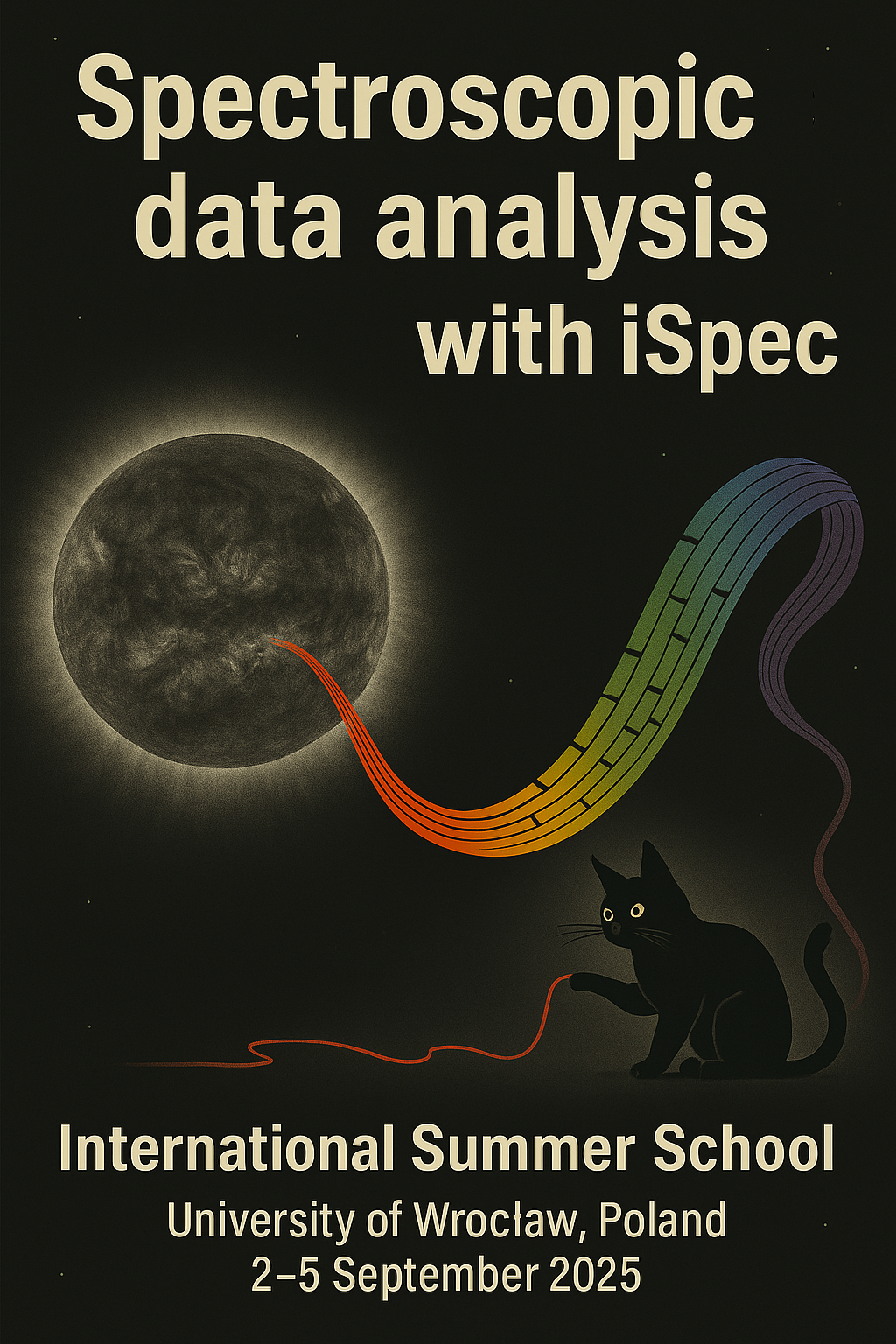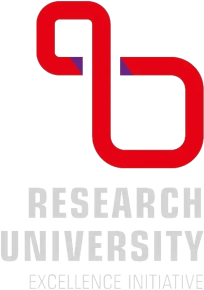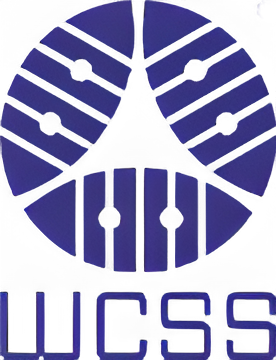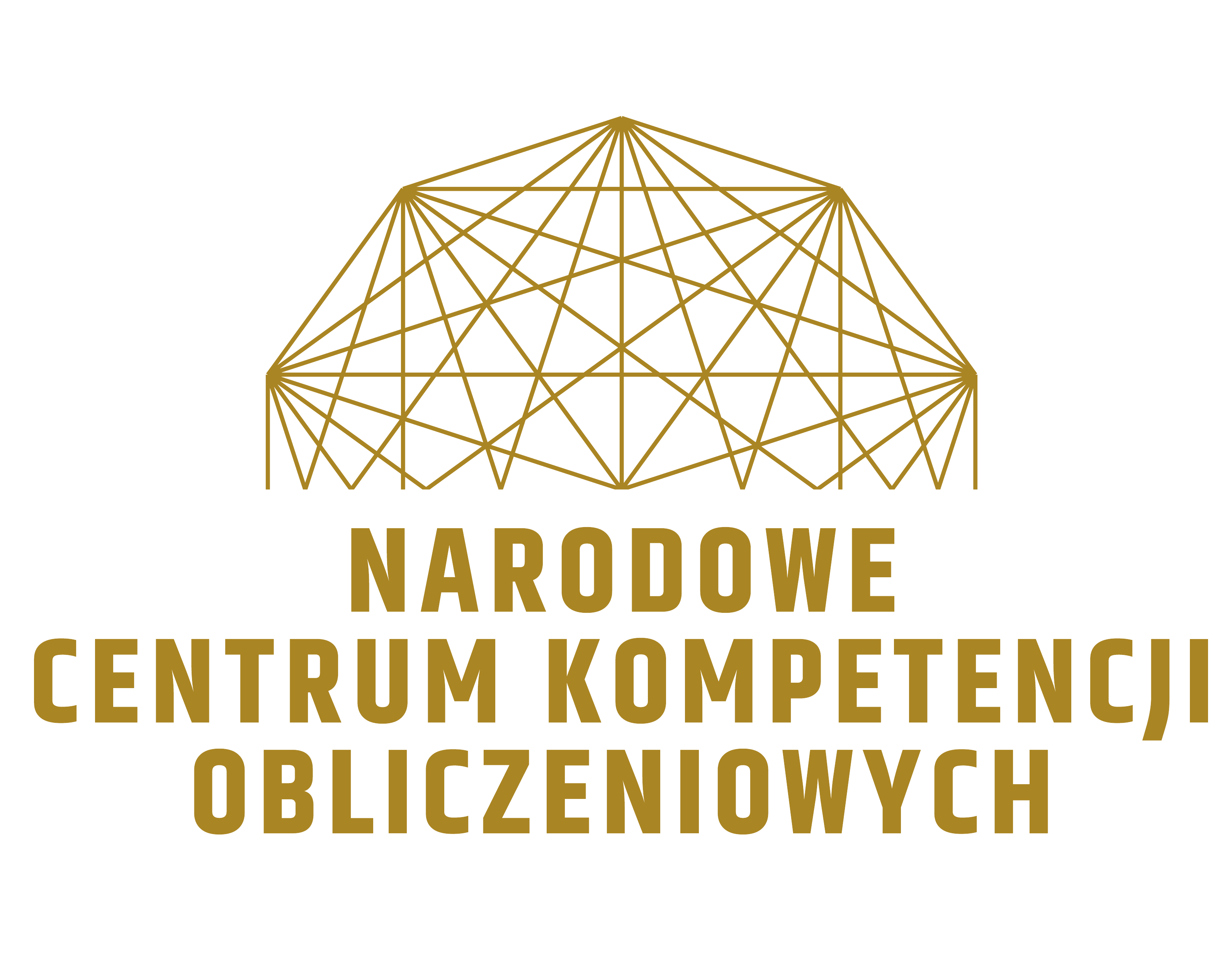University of Wrocław, Poland | 2–5 September 2025
Rationale
- This school aims to provide participants with a solid foundation in analysing stellar spectra, particularly in deriving atmospheric parameters and chemical abundances. The sessions will be structured around iSpec, a comprehensive tool designed to treat and interpret stellar spectroscopic data. As part of the learning experience, the school will also incorporate and explore recent advances in artificial intelligence. iSpec is available at official website.
- iSpec facilitates a wide range of spectroscopic tasks, including removing cosmic rays, continuum normalization, resolution degradation, radial velocity correction, identification of telluric lines, and resampling. It also enables the determination of fundamental stellar parameters—such as effective temperature, surface gravity, metallicity, microturbulence, macroturbulence, and rotational velocity—for A, F, G, K, and M-type stars. These parameters can be derived through two complementary approaches: the synthetic spectral fitting technique and the equivalent width method.
- The software integrates MARCS and ATLAS model atmospheres. It supports several widely used radiative transfer codes, including SPECTRUM (R. O. Gray), Turbospectrum (Bertrand Plez), SME (Valenti and Piskunov), MOOG (Chris Sneden), and Synthe/WIDTH9 (Kurucz/ATLAS). While iSpec offers a well-suited graphical interface for introductory use and educational purposes, its full potential is realized through its Python-based implementation. This approach is recommended for advanced scientific analyses as it ensures reproducibility and access to an extended set of features and customization options.
- During the school, participants will receive a series of introductory lectures on iSpec and engage in hands-on exercises focused on determining the atmospheric parameters of A, F, G, K, and M-type stars. These exercises will use publicly available observational data and pre-computed synthetic spectra. The lecturers include the main developer of iSpec and experienced stellar spectroscopists who have extensively used this tool and have trained numerous PhD students and postdoctoral researchers.
- The course is open to PhD and master's students and early career scientists. There is no registration fee. All accepted participants will have accommodation and lunches covered during the workshop.





